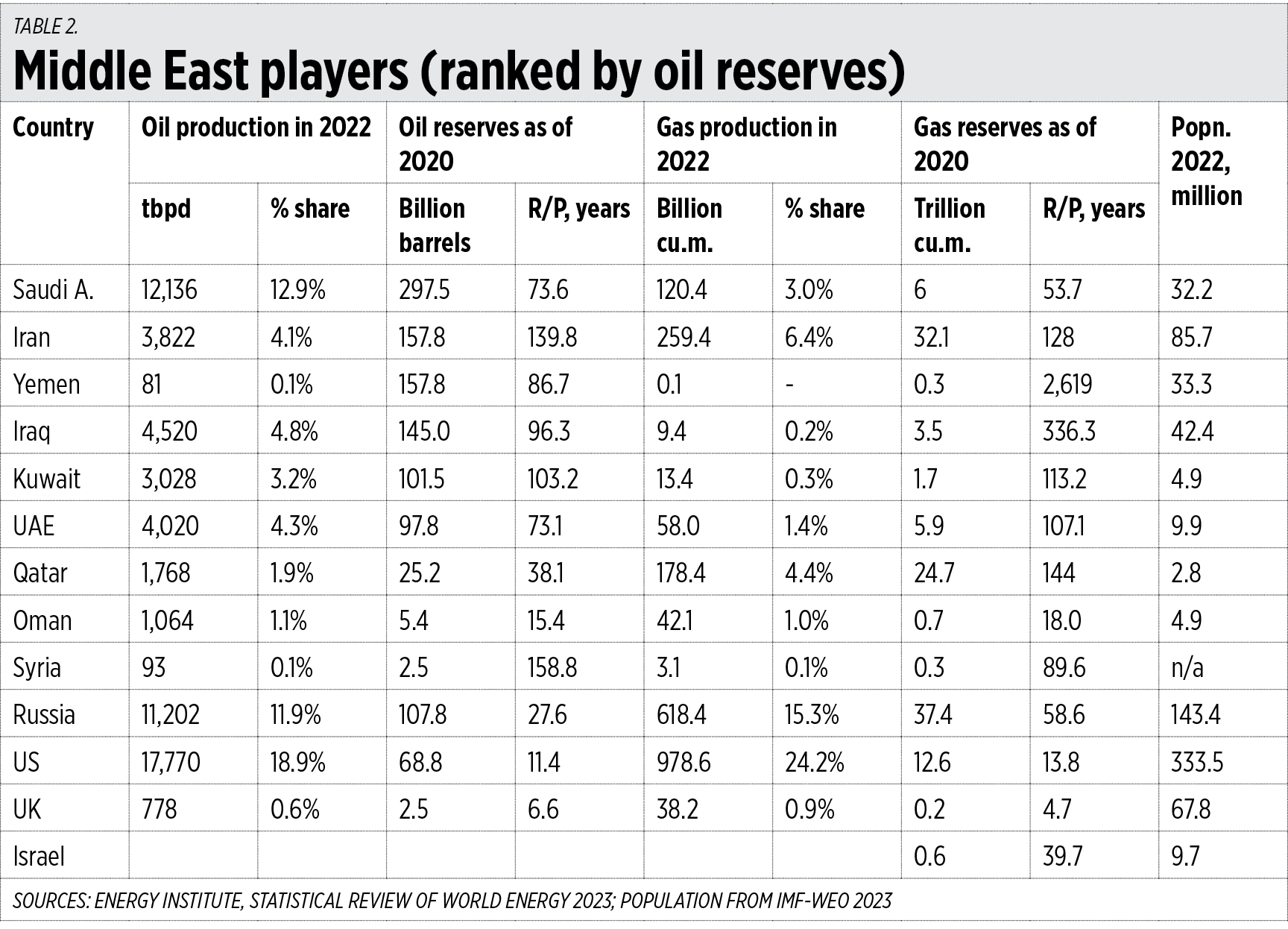
My Cup Of Liberty
By Bienvenido S. Oplas, Jr.
“I sincerely believe that by our awareness we will be able to protect our beloved profession better against predators and opportunists who are already using my case as a legal precedent to file criminal cases for any complication arising from any of our treatment or surgery. It is time we doctors heal and protect ourselves too, but eventually for the good of our patients.” — Benigno “Doc Iggy” Agbayani, Jr. in “An open letter to my fellow Filipino doctors and friends,” Sept. 16, 2023.
This piece will discuss two important issues: a legal uncertainty on the heads of Filipino surgeons in the practice of their profession and energy complications of the war in the Middle East.
DOC IGGY AGBAYANI CASE
Doc Iggy passed away on Oct. 5, 2023 at the Manila City Jail while doing two things: helping hundreds of fellow inmates in their medical and social needs and fighting for justice about his case and by extension the medical community.
Two important statements have been issued recently, one from the Philippine Orthopaedic Association, Inc., a surgical specialty society recognized by the Philippine College of Surgeons and the Philippine Medical Association in “Letter of support for the late Dr. Benigno ‘Iggy’ Agbayani, Jr.” on Oct. 26.
The group said: “We, the board of trustees of the Philippine Orthopedic Association, express our unwavering support for the appeal for review of the case of the late Dr. Benigno A. Agbayani, Jr. by his friends and family. Dr. Agbayani was an experienced and dedicated orthopedic surgeon who was incarcerated for an apparent common complication associated with a surgical procedure. Unfortunately, he suffered a major heart attack and passed on while in prison.
We strongly support the request for clarification regarding the legal issues related to his incarceration. We firmly believe that this intervention is necessary to address the growing concerns among medical practitioners who fear a similar fate in the future.”
The second statement came from the Phi Kappa Mu (PKM) fraternity, an all-doctor students and professionals from the University of the Philippines College of Medicine in “Call to justice for the late Dr. Benigno Agbayani, Jr.: Safeguarding the nobility of the medical profession” on Oct. 29.
The PKM fraternity said: “We earnestly appeal for justice in the case of the late Dr. Benigno Agbayani, Jr., a loyal son of the Phi Kappa Mu, a highly trained and seasoned orthopedic surgeon wrongly accused and convicted of reckless imprudence resulting in serious physical injuries. The judicial proceeding at the Metropolitan Trial Court and the appeal process that followed have been marred by disregard for due process, procedural errors and misapplication of rules, leading to a void judgment.”
I personally know Doc Iggy. He was two years younger than me in UP and he was very intelligent — a graduate of the Philippine Science High School and BS Biology from UP Diliman, had a medical degree from the UP College of Medicine and an internship from the UP Philippine General Hospital. And he was very patriotic: many UP alumni, especially UPCM graduates went to rich countries to practice their profession while Doc Iggy stayed put and treated and healed so many patients here.
To improve healthcare in the country, the supply of proficient, highly trained health professionals should increase, not decrease. Then the professional cost of healthcare will stabilize. It’s simple and basic health economics. The lawyers and other parties who persecuted Doc Iggy for about 16 years could be thinking otherwise: improve healthcare in the country by reducing the number of proficient health professionals via legal harassment and imprisonment. Lousy minds.
See my column about the man, “Revisiting the lockdown, the role of CDC PH and Doc Iggy Agbayani” (Oct. 10), then this recent report in BusinessWorld, “Philippine ranking in WJP Rule of Law Index falls for fifth straight year” (Oct. 25).
WJP RULE OF LAW INDEX
The WJP’s Rule of Law index annual report is a good indicator of a country’s justice system. The index is derived from eight factors — constraints on government powers, the absence of corruption, an open government, fundamental rights, order and security, regulatory enforcement, civil and criminal justice. The 2023 report involved more than 149,000 households surveyed and 3,400 legal practitioners and experts in 142 countries and jurisdictions.
There was a deterioration in the Philippine ranking from 51st out of 102 countries in the 2015 report to 100th out of 142 in the 2023 report. It was worse than socialist China and Vietnam. Two factors that pulled the country down were fundamental rights (including due process of the law and rights of the accused) and criminal Justice (including “criminal system is impartial,” “criminal system is free of improper government influence”). See Table 1.
What happened to Doc Iggy should be a reflection of the poor justice system in the country. Some business and professional sectors in the country could be salivating at the big money that can come out of legal uncertainties on the heads of Filipino surgeons. The cost of surgery and other medical services could increase, which will be passed on to patients and their families. This is bad health economics. The government — the Judiciary, Legislature and Executive — should look into this and the case of Doc Iggy as a precedent.
MIDDLE EAST CONFLICT
The renewed Middle East conflict, particularly the war between Israel and Hamas in Gaza, Palestine, is largely caused by two factors: the existence of non-Muslim Israel in the Middle East which many Palestinians and Iran do not recognize, and the endless war for oil by the US and many NATO countries.
I construct this table below showing oil production in thousand barrels per day (bpd), oil reserves, oil reserves/production (R/P) ratio or the number of years before the reserves will be depleted assuming current production (for domestic use and exports) continues. Then gas production in billion cubic meters (cu.m.) and gas R/P ratio.
In terms of oil reserves, Saudi Arabia, Iran, Yemen, Iraq, Kuwait and the United Arab Emirates (UAE) are the largest in the Middle East. In gas reserves, the largest are Iran and Qatar (Table 2).

The US has big oil reserves too but because it has huge domestic demand, its R/P ratio shows it can be depleted in just 11 years so they must import more oil from other countries and invade or occupy other oil-rich countries. Hence the invasion of Iraq in 2003, and occupation of oil- and gas-rich regions of Syria since 2014. Syria had a population of 21.4 million in 2010. No population data are available after that.
Iran is rich both in oil and gas. Despite decades of economic sanctions against it by the West, Iran has extra resources to arm itself and many militant movements in the region — Hamas in Palestine, Hezbollah in Lebanon and Shiite militias in Iraq, among other groups.
To achieve peace in the Middle East and help stabilize global energy trade, I think one of the long-term solutions is for the US military to step back and for US diplomacy to step up. The Abraham Accords of peace agreements — Israel-UAE, Israel-Bahrain, Israel-Morocco, Israel-Sudan – initiated by Trump are good projects that should be continued.
Bienvenido S. Oplas, Jr. is the president of Bienvenido S. Oplas, Jr. Research Consultancy Services, and Minimal Government Thinkers.